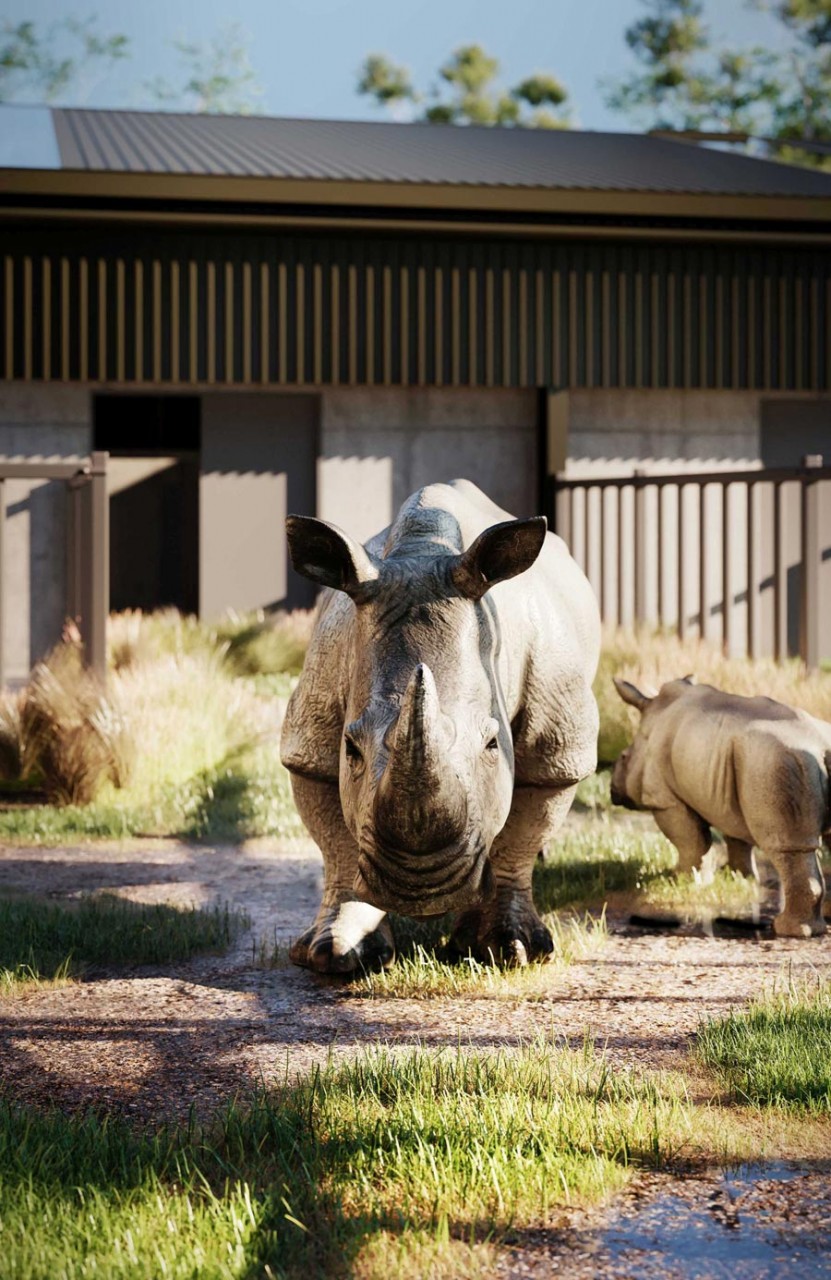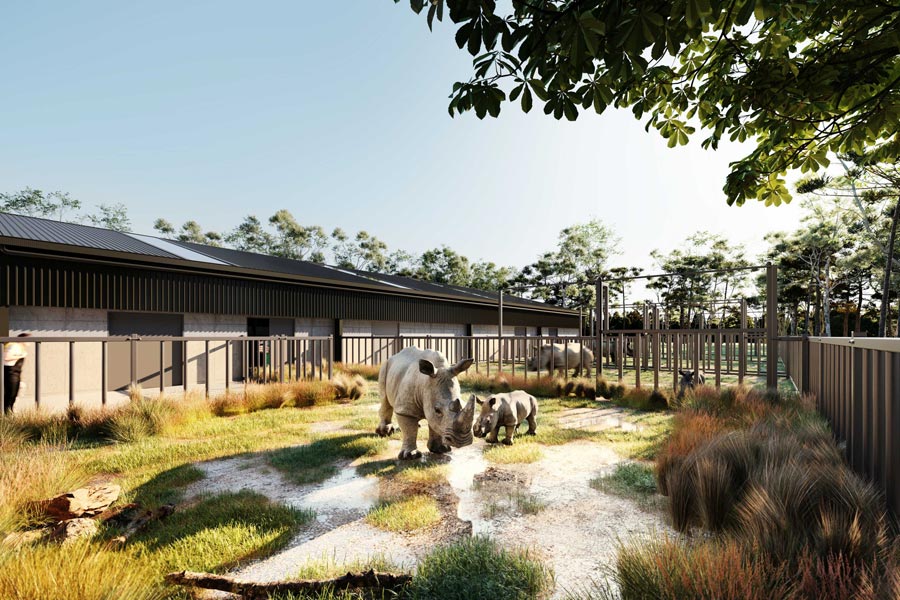Christchurch wildlife park helping to save the rhinos
Christchurch’s Orana Park is stepping up to help save rhinos from extinction, beginning construction on a new White Rhino Conservation Centre that will be able to hold 20 rhinos at a time.
Construction on the new $1.4M facility begins Wednesday July 14 and will aim to increase genetic diversity of the existing population and help protect the species. Chief Executive Lynn Anderson explains that without swift action, rhinos could very well be extinct in our lifetime.
“In Africa, one rhino is illegally killed on average every six hours for its horn. Rhino poaching is out of control and there are more rhinos killed than there are born. Unless we act now, rhinos may tragically be extinct within 10 years.”
As New Zealand’s only open range zoo, Orana Park has partnered with two Australian open range zoos and The Australian Rhino Project (TARP) to expand the managed rhino breeding population in Australia and New Zealand. This will involve transferring approximately 35 animals (ten per transfer) from wildlife reserves in Africa to maintain a genetically diverse population in the safety of New Zealand and Australia, should rhinos become extinct in the wild.
“Our White Rhino Conservation Centre is essential for this project. Every rhino transferred from Africa that is destined for our Australian partners must be quarantined in New Zealand for up to one year in our White Rhino Conservation Centre. Some rhinos from each import will remain at Orana to progressively develop a larger breeding herd here. Rhinos will be re-exported to our partners in Australia to develop increased breeding herds there.”
“Rhinos are counting on us all for their survival. As a charitable trust, Orana raises 100% of funds for all developments. We must raise the remaining $650,000 of the $1.4M needed to make this ambitious project a reality. As part of our public fundraising campaign, we have launched a Give a Little Page enabling the community to help us contribute to conservation on an international scale.”
“Our entire team is passionate about conservation and privileged to be involved in a project to help secure one of the world’s most iconic species,” Lynn said.

Image: One to One Hundred

Image: One to One Hundred